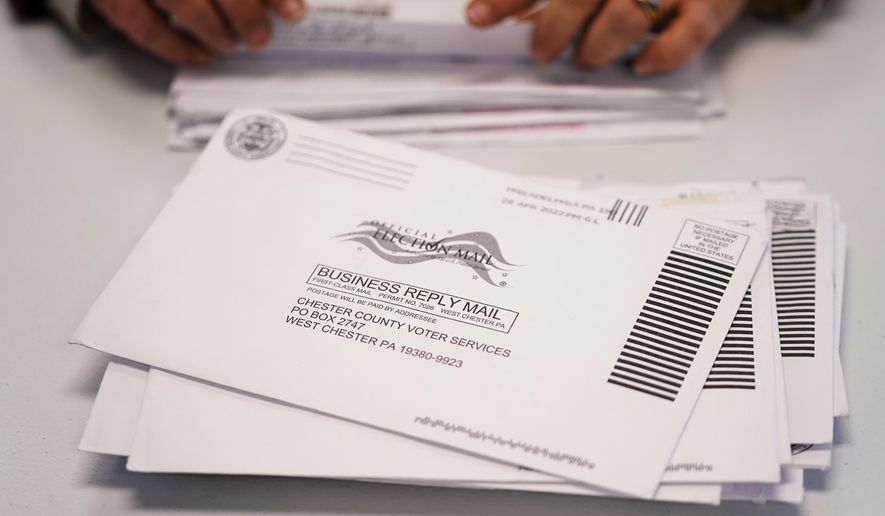The Pennsylvania Supreme Court has upheld a 2019 law that permits universal mail-in voting in the swing state.
The 5-2 ruling this week divided the court’s five Democratic justices from the two Republicans, with the majority saying the state had decades of history regarding universal mail-in balloting.
“We find no restriction in our Constitution on the General Assembly’s ability to create universal mail-in voting,” wrote Justice Christine Donohue for the majority. “Absentee voting has a long history in the Commonwealth, dating to 1864.”
Republican lawmakers had challenged the legislation, which was passed in 2019 with bipartisan support, arguing the universal mail-in voting provision ran afoul of the state Constitution.
A lower court had ruled in favor of the challengers, but the state’s highest court rejected their argument, reasoning the General Assembly had the power to pass and implement laws regulating elections.
Prior to the 2019 legislation, voters had to qualify to vote by mail and establish that they were considered an absentee voter.
The Pennsylvania Supreme Court noted the legislation “was an enormously popular piece of legislation on both sides of the aisle” when it was passed.
After former President Donald Trump lost the 2020 election, GOP lawmakers brought a challenge looking to curtail the absentee balloting provision.
Justice Sallie Mundy, a Republican, dissented from the ruling, arguing voters could make mistakes since they are not able to get help from polling officials if they vote by mail and that it was “self-evident that the integrity of electoral actions becomes more difficult to verify when they are undertaken at a distance and outside of public scrutiny.”
The court’s ruling leaves universal mail-in voting in place in Pennsylvania for upcoming elections.
More than a dozen Republican lawmakers in Pennsylvania, however, have filed another lawsuit to toss the provision favoring mail-in voting. That case is still pending.
Absentee voting, without forcing voters to meet certain criteria to cast a ballot by mail, is allowed in more than half of the states.
• This story is based in part on wire service reports.
• Alex Swoyer can be reached at aswoyer@washingtontimes.com.




Please read our comment policy before commenting.